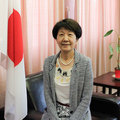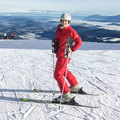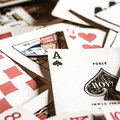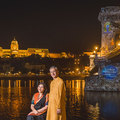What kind of a father will the little boy be, who lost his daddy at the age of 12? How does he raise 4 children while performing foreign service in the name of the King of Norway? Exclusive interview with Norway's ambassador to Hungary...
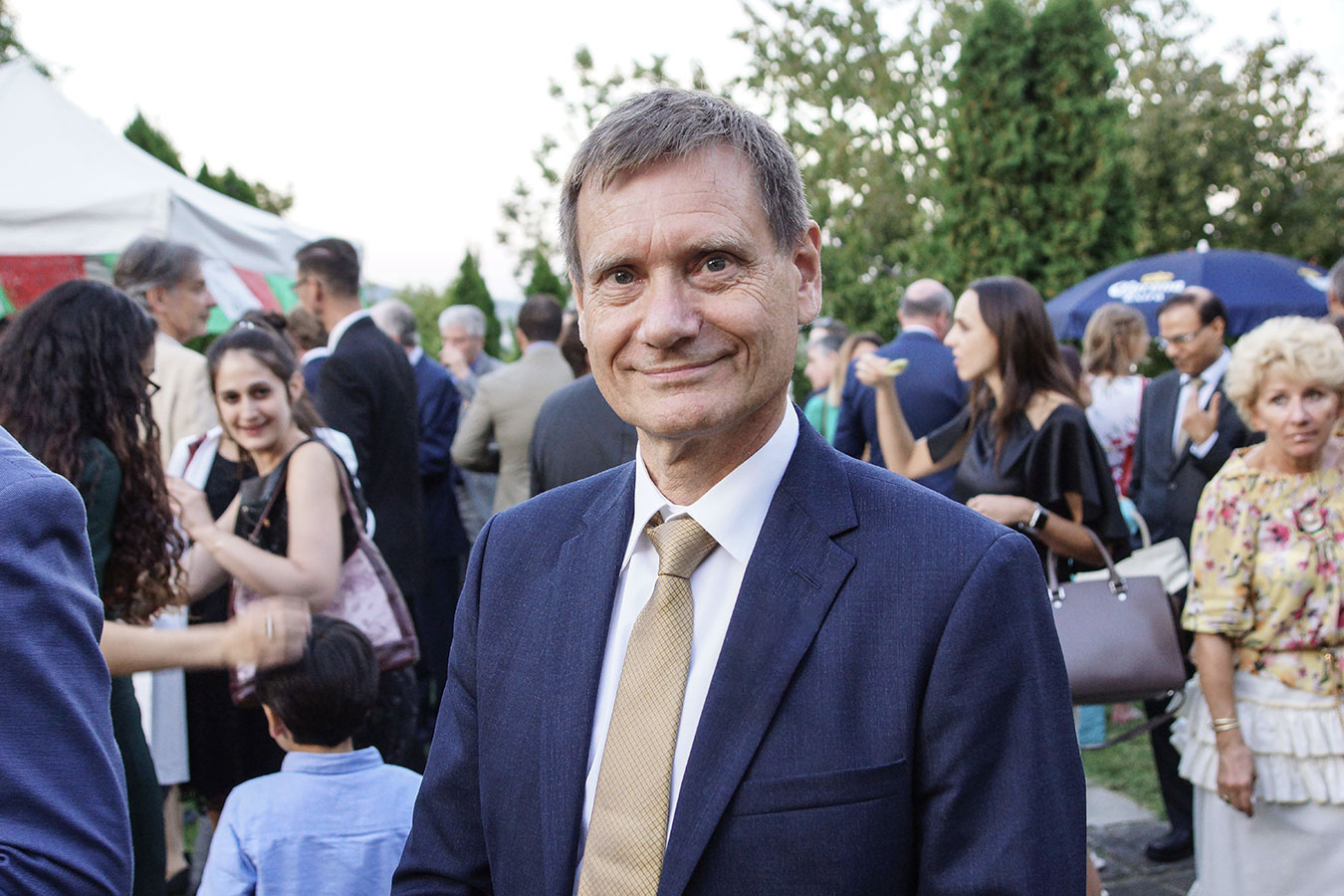 Photo by Ivan Aigner
Photo by Ivan Aigner
+++ Kattints ide a cikk magyar változatának olvasásához! +++
Take a Look Behind the Scenes…
For many, diplomacy is a mysterious, obscure, and boggy area. There is hardly anything to know about the negotiations – dancing on the sharp edge of the sword and striving for mutually beneficial solutions – behind the events playing in front of our eyes, as well as being in the crossfire of various political and economic forces.
However, it is exactly these highly educated, intelligent diplomats and their enthusiastic, devoted staff who, in the midst of the overwhelming deluge of information and fake news, safely build the framework of peaceful international cooperation in the background.
Pessimism or Optimism?
My articles include thoughts and stories by authentic personalities (ambassadors, attachés, and other members of the diplomatic corps, as well as well-known and respected persons) who carry out their jobs as a true mission to build and develop international relations in the interests of fruitful cooperation. One of them is the Ambassador of the Kingdom of Norway to Hungary, H.E. Olav Berstad, who is taking us on a journey through the exciting and responsible world of diplomacy and fatherhood.
You have just started the third year of your mission in Hungary. What have been your experiences both professionally and as a private person?
I have enjoyed every minute of my stay in Hungary. Budapest is one of Europe’s greatest cities. There is always something going on, a festival, concert, exhibition and so on. As an ambassador, I get a lot of free offers and invitations. I live a highly privileged life, meeting so many interesting and knowledgeable people, diplomats, politicians, people of the arts and science and research, business persons, and so on.
We have our embassy and residence on the Buda side. I always find the atmosphere of Pest “exotic”, with all the tourists and colours. I enjoy also the Buda hills a lot, both for jogging, walking, and biking. Indeed also an occasional ski trip when, - if - there is snow in winter.
Professionally, Hungary is a story of its own. I think I will diplomatically formulate it like that. This is my seventh posting abroad and my third as an ambassador since I joined the Norwegian foreign service in 1980. However, here I see a different political philosophy or practice than what I have seen before. Hungary has made a very successful transition since the fall of communism, but now I sense that you are moving back in history, focusing on past losses, pessimism, and fear of the future and perhaps even of neighbours. I think one of the great achievements of Norway is the openness of the society, optimism, and the conviction that challenging issues can be solved or at least effectively and skillfully be managed, but never by us Norwegians in isolation, always together with neighbours, partners and allies.
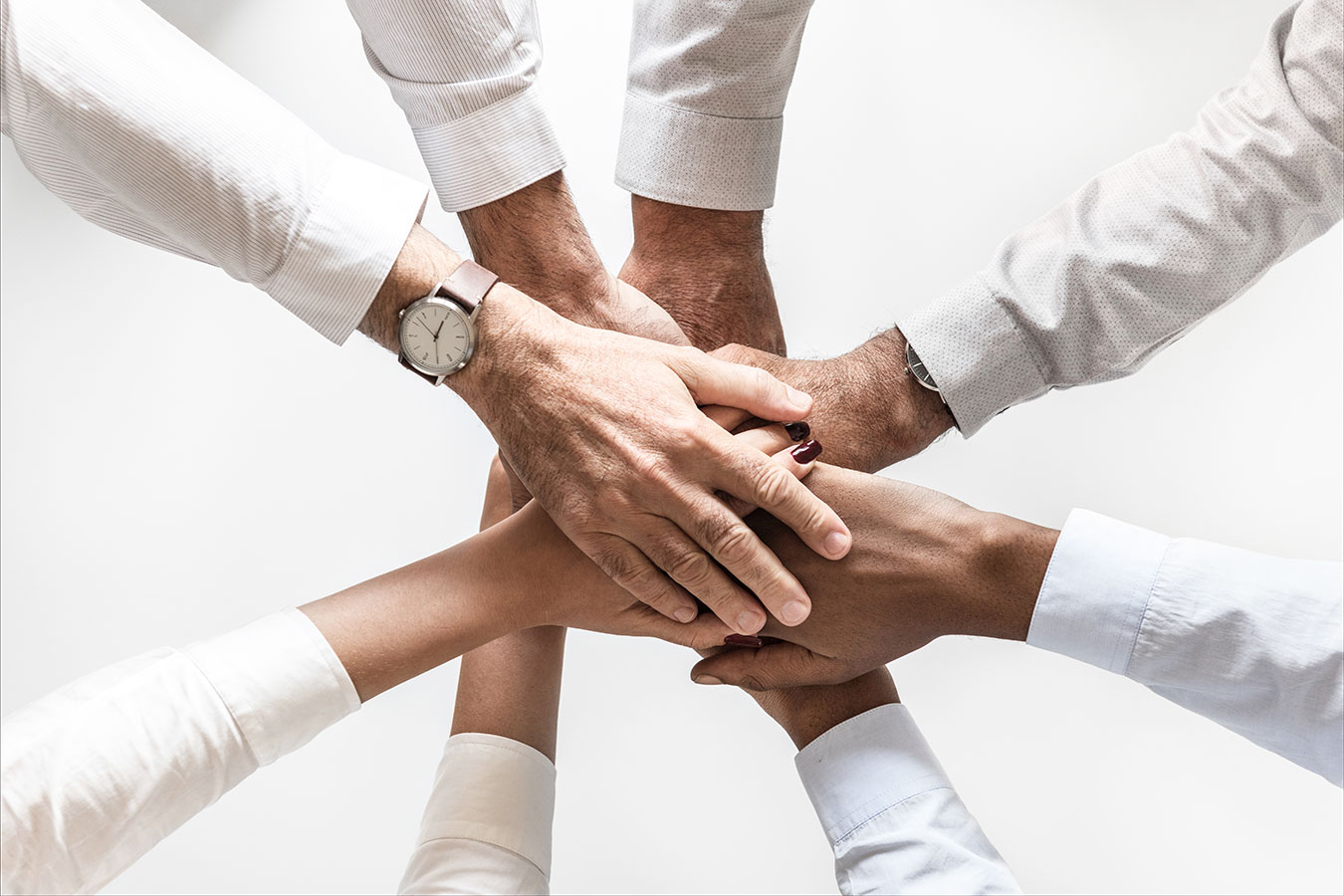 Photo by
Photo by
Different Approach to Crisis Management
That’s interesting. Do you find that Hungary is an isolationist country?
No, I don’t. But I think there is an unhealthy emphasis on Hungary as a unique country, the Hungarians as a unique people. We are all unique in one sense or another. We have a strong national pride in Norway, emphasising our history, traditions, freedom and independence. But I feel that for us this is a strong platform for reaching out to others, embracing and welcoming foreign impulses and even people, sharing the burden for instance of managing refugee flows and migration. In Hungary a similarly strong national pride seems to create different responses. I may be wrong, but don’t think so.
+++ Have you lived or ever been to Norway?
Share your experiences and stories in a comment below. +++
Fatherhood Then and Now
Since 1949, Father’s Day (Farsdag) is celebrated on the second Sunday in November in Norway. What is your most memorable holiday memory?
I can’t say that Father’s Day was or is something widely celebrated in Norway. (Probably the owners of gift shops are the strongest supporters). When I grew up in the 1960’s the idea was to be nice to your father, bring him coffee and breakfast in the morning. At school, the day before, we made picture cards with drawings, perhaps drawings of things we associated with our fathers, perhaps a poem, but definitely with good wishes in colour and writing.
I think the concept of fatherhood is different today than when I was a child. Now, many children grow up without a father, because of divorce, long distances, other forms of separation. And in some cases children are born as a result of artificial insemination or sperm or egg donation, without a “father”. The notion of family has become much more complex, to put it this way. The stereotype of the past is father, the worker, breadwinner who returns home tired in the evening after work, having little time for the children before they must go to bed. Luckily, today the role of being a father is much wider, more engaging and participatory in the caring and upbringing of children. In that sense every day is a Father’s Day.
I remember that my father one day bought me a toy which we both saw in the store. He bought it on the spot. It was a kind of elastic band launched rocket. It would unfold a small parachute when falling down back to earth. To me, that was definitely Father’s Day, but it was also My Day and Our Day! I was very happy.
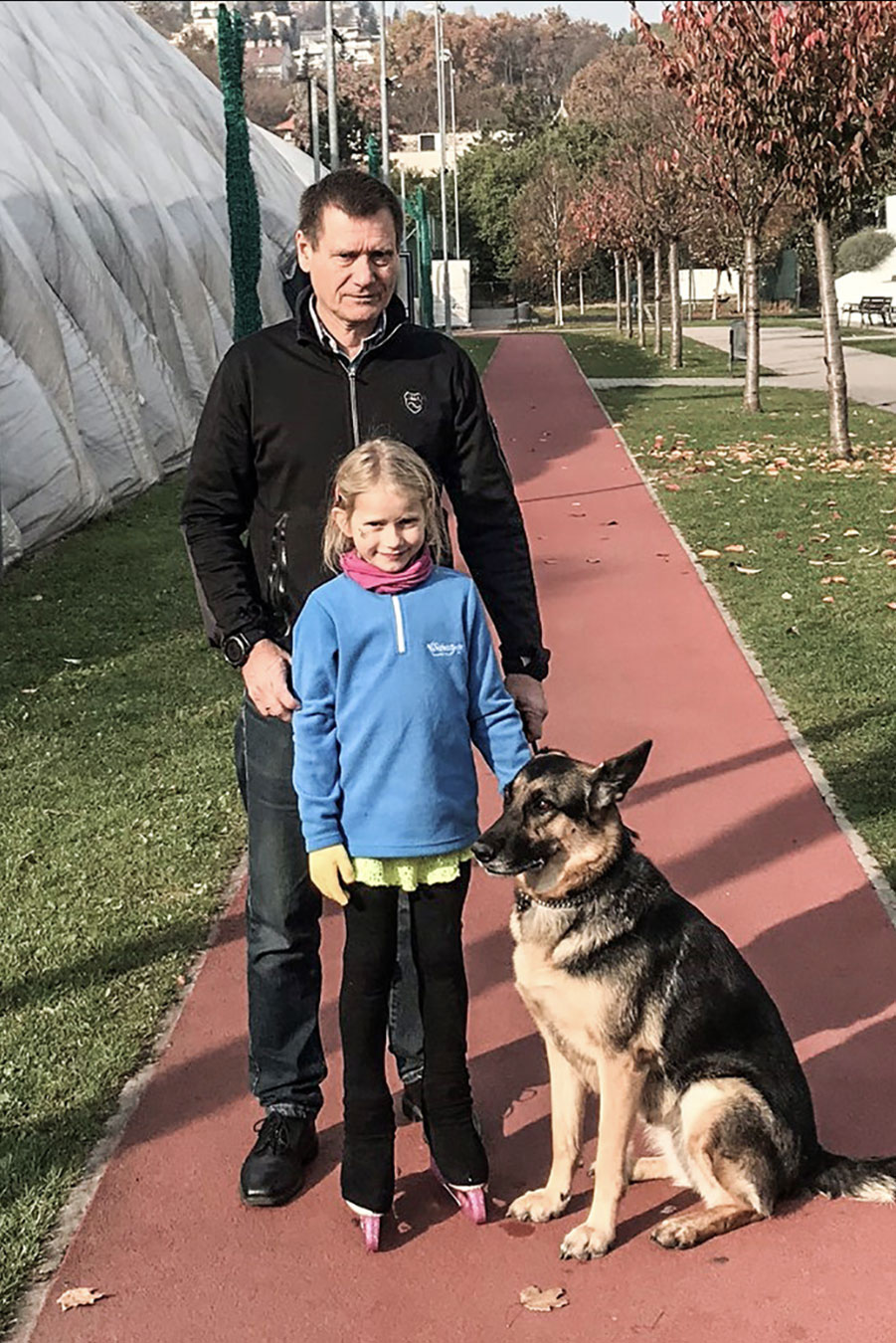 The ambassador with his youngest child, Katrine, and the youngest member of the family, Lajka (Private archive)
The ambassador with his youngest child, Katrine, and the youngest member of the family, Lajka (Private archive)
Family Nest at the Oslo Fjord
Looking back on that occasion, how did you as a diplomat and a father of four children succeed to manage to balance a responsible and challenging career in foreign affairs with creating a loving environment for your family?
I think I have always tried to give my children – they are now 29, 18, 17 and 7 – some positive memory of myself and of being a family. I want to give them special moments to remember forever, occasions when they feel and recognise that we are together, a family. I don’t believe so much in material gifts. If you use them too frequently, they lose a lot of meaning. So the story about the rocket is not about the thing, but the sharing of a moment, of together finding out how it worked, the first successful “launch”, etc. (We lived right next to the railway. I remember that the rocket landed by parachute on the other side of the track and fences. I rushed over and around by bike to get it as fast as I could).
I think the balancing act you ask about is a difficult one. Some children from diplomat families suffer from frequent moving to new, sometimes challenging or exotic places. They feel that they don’t have any proper “roots”. I hope that I have succeeded in creating a good family environment and a strong sense of “roots” in my children. We have a small house a little south of Oslo, where the children know the neighbours, and the neighbours know us. That is our HOME we love to return to.
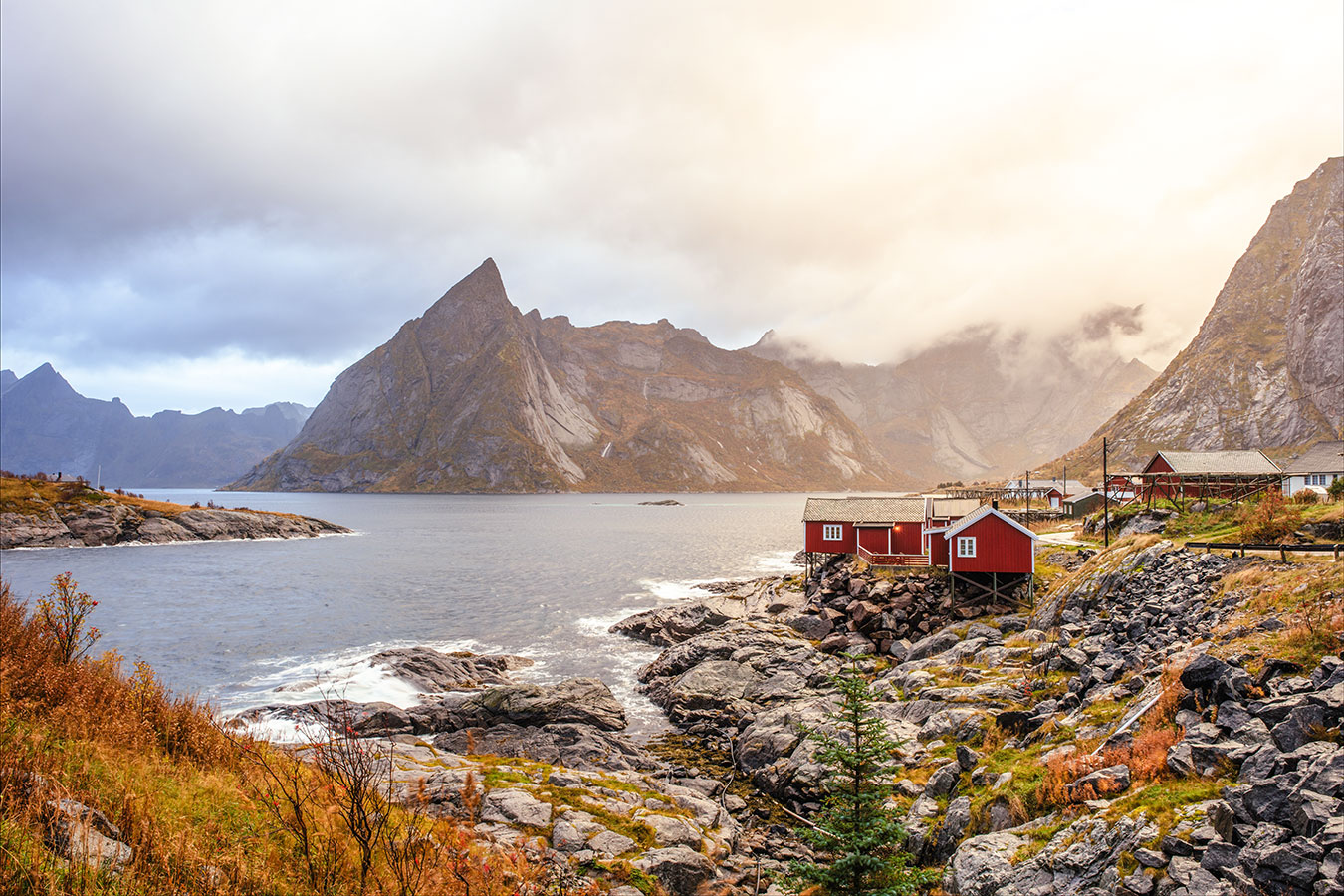 Photo by Mischa Bachmann
Photo by Mischa Bachmann
Advanced Social Security System
Norway has a 100,000+ kilometers of twisting coastline. This natural embroidery is also reflected in every level of the Norwegian way of life. So, no wonder that the bonding of a newborn with both parents is supported by the state through various social benefits. Where is this very family-oriented mindset rooted?
Norway is a beautiful country, clearly. But I have seen enough of the world to realise that every little corner has its own beauty or special character and that people everywhere fundamentally share the same aspirations. However, a refugee from Bosnia told me some years ago that the Norwegians have a unique trait. Norwegians trust their neighbour. And not only that, they also trust the state. I think that a high level of trust within the society is something we share among the Nordic countries. Trust gives us a competitive advantage. Trust, I think, is a result of generations recognising that honest work, willingness to learn and adapt to new conditions, cooperation and seeing also the good in your political opponent, is smart and better for everybody.
Our level of social benefits and inclusion has developed over a long time, accelerating in the 1960-90’s as the state got financially stronger. In 1978 both fathers and mothers got equal right to paternity leave. In the early 1990’s a four week special allocation for fathers (“fathers’ quota”) was introduced. Today both parents share a 49 week long paternity leave at 100 % of the salary, or alternatively 59 weeks at 80 %. 15 weeks are allocated to the father and 15 to the mother. If you don’t use your quota, you lose it.
I have to admit that the principle of a “fathers’ quota” is disputed in Norway. Many feel that it should be up to the parents to decide how to use the total quota, not for the state to kind of dictate that men should be home with the child for at least 15 weeks.
+++ Do not miss other interviews and reception reviews! Click the KÖVETÉS button in the upper right corner… +++
„Let Us Make the Planet Great Again.”
Ideally, a father paves the way to the healthy future of his children. Therefore, sustainable growth, environmentally friendly energy resources, and strong, reliable international partnerships are issues of utmost importance in our troubled world. In your opinion, how can small but geographically well-located countries like Hungary and Norway effectively exercise their influence in order to ensure stability and peace?
It is not only a father’s responsibility to pave the way as you put it, but also the mother, of course. There is a shared responsibility in all aspects.
Smaller countries can only exercise their influence if they cooperate among themselves and with the larger countries. As a diplomat and as a Norwegian, I find it quite natural that we first and foremost emphasise our national interests. “Making our country great”, or “great again”, is a good thing, if it doesn’t harm anybody else. However, I also like president Macron’s statement “Let us make the planet great again.” I don’t see any automatic contradiction here.
It is possible to make our planet truly great, if we change our mindset slightly and really implement the agreed UN sustainable development goals. I have written for myself four quite personal SDGs: working together in order to 1) eradicate diseases, 2) fight ignorance, 3) defeat poverty, - and 4) combat “nonsense”, - the superstition, traditions, beliefs and fake news which confuse, distract and weaken us.
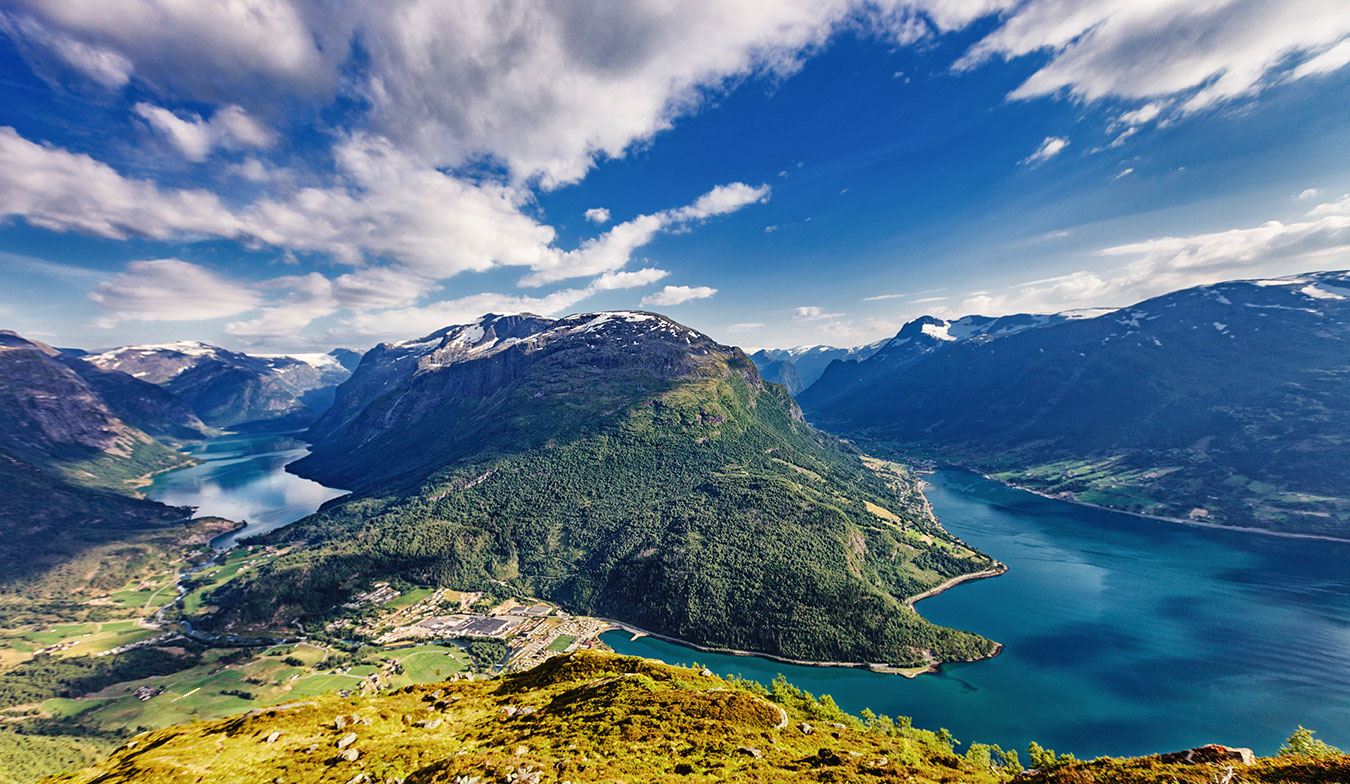 Photo by Damir Spanic
Photo by Damir Spanic
Scout Law Free of Superstition
If you had the power to change one thing in the world for the better, what would you do?
One thing? I believe in small steps forward. A small, good thing would in my view be to systematically teach the Scout Law in school and everywhere. I was a scout myself and I think the Scout Law is an excellent moral and ethical compass for everybody, irrespective of faith and other things. For me, this would be a bottom-up instrument of change. But I also realise that peaceful revolutions have a role to play. For instance, I regard women’s emancipation and equal rights as a real and positive revolution.
If you ask for a big thing of change, I think we should now systematically try and reduce the role and influence of religions and religious hierarchies. Religion in my view is a type of superstition. It is also an instrument of mind-control and suppression which should have been put into the dustbin of history already a long time ago.
Related Articles
Check out other related articles such as the interview with the Belgian ambassador and the former Indian ambassador. Click either the pictures or the titles highlighted in black below… >>
|
|
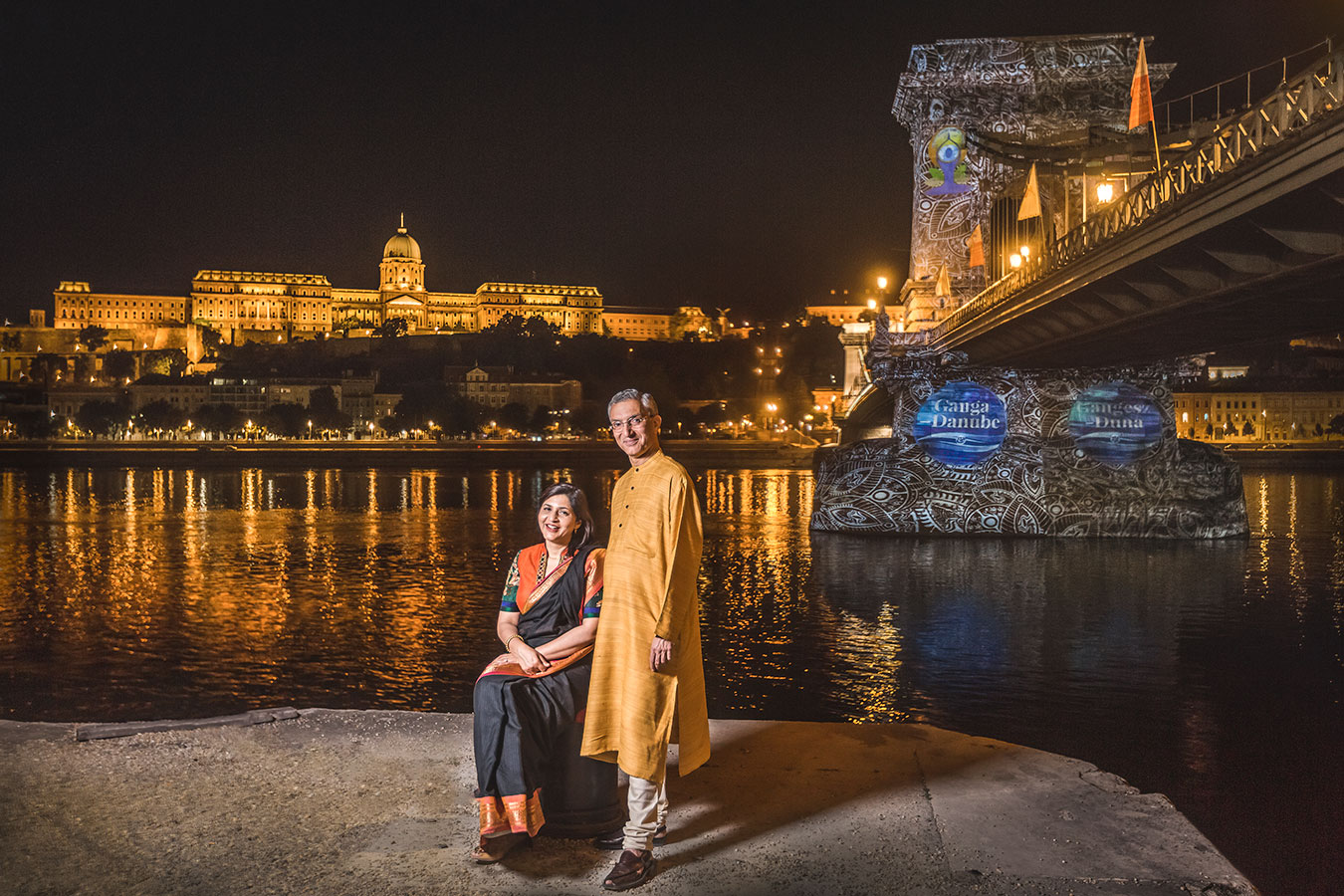 >> Confession of an Ambassador in the Shadow of Terror << >> Confession of an Ambassador in the Shadow of Terror << |
Useful Links
Do you want to know more about India, the operation and mission of the Embassy of Norway in Hungary? Are you interested in Indian-related programs and events? Visit the Official Website of the Norwegian Embassy and follow them on Facebook...
♦ ♦ ♦ ♦ ♦
✅ Do you like the article? Like and share it!
⛔ Any constructive opinion? Let it flow out! Write a comment!
❓ Are you curious what other exciting and interesting articles are coming up next? Definitely click on the FOLLOW button in the upper right corner!
➕ Are you wondering who pulls the strings in the background? Are you keen on getting more details? Join me on Facebook and Instagram!
Like me on clicking at www.facebook.com/diplomaciamindenkinek!
♦ ♦ ♦ ♦ ♦
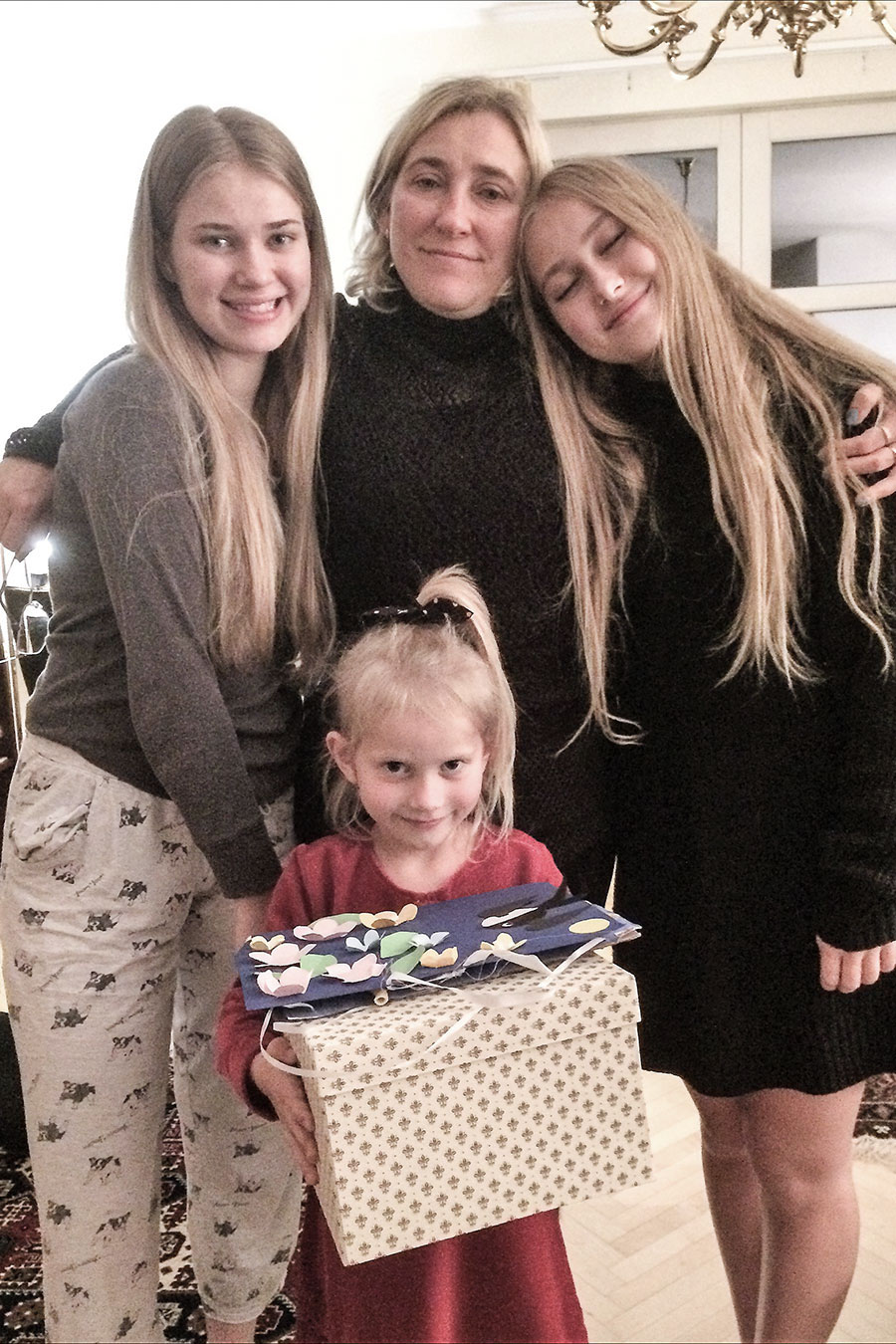
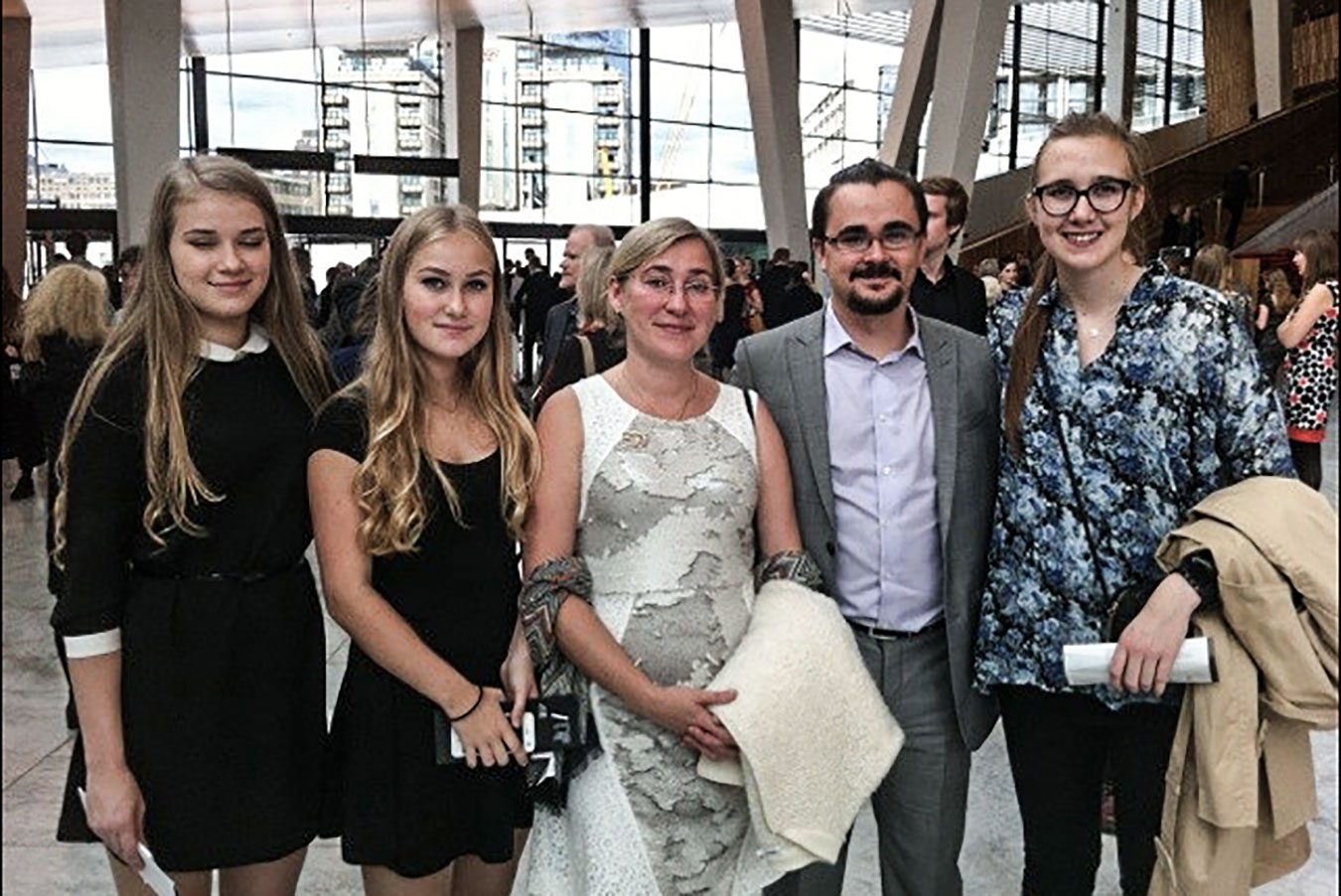
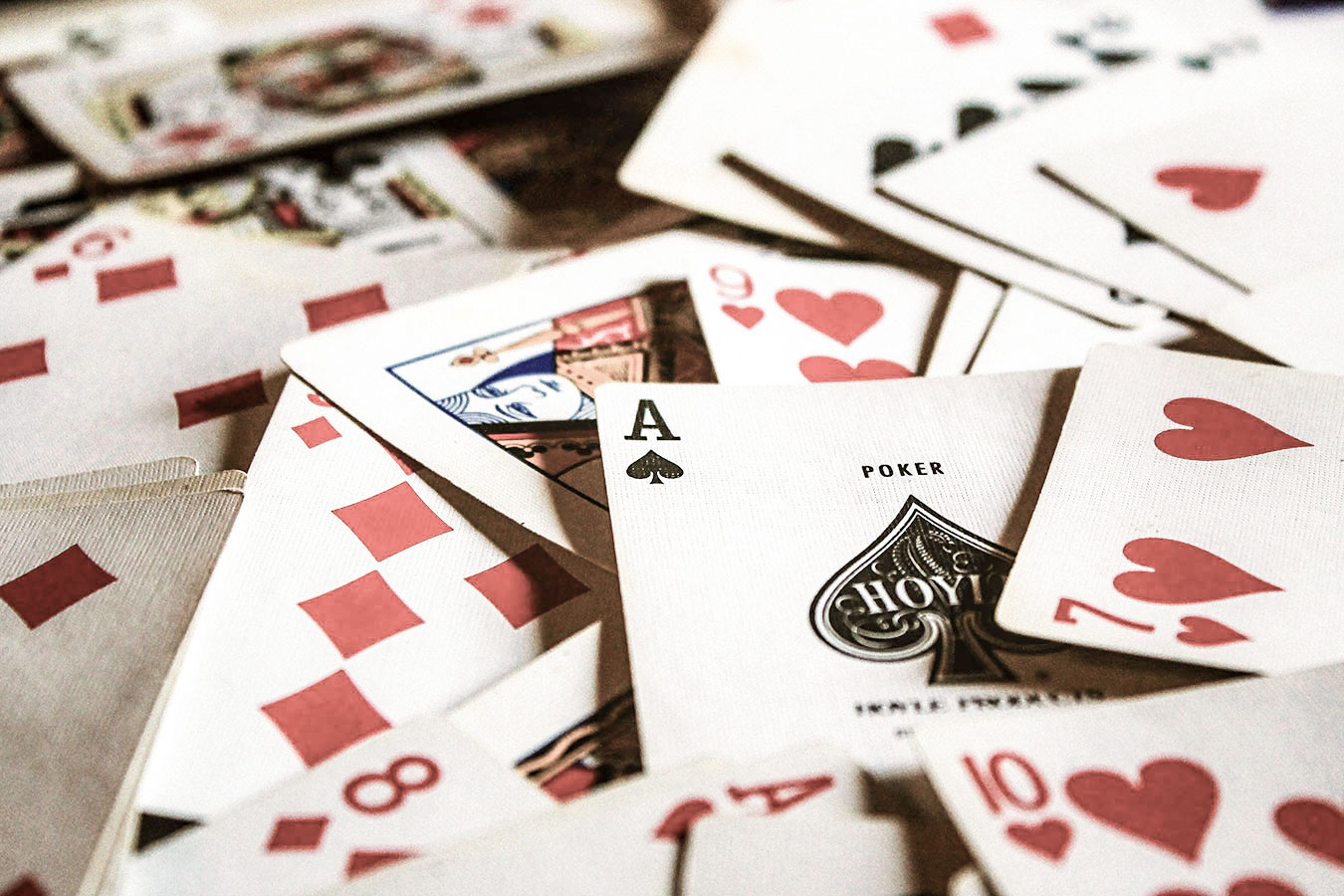 >> Belgian Ambassador Reveals the Trump Cards of Diplomacy <<
>> Belgian Ambassador Reveals the Trump Cards of Diplomacy <<
